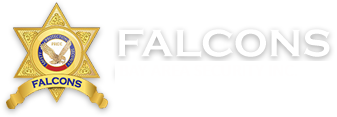Off-page SEO strategies help your site stand out in crowded online spaces. For example, if top-notch backlinks support your website, it has a better shot at popping up in search engine results. Off-page SEO is about building your site’s E-E-A-T (Experience, Expertise, Authority, Trustworthiness) through backlinks, mentions, reviews, and recommendations. When your brand gets acknowledged by another site, it indicates to search engines that your site is noteworthy and relevant.
The broken link building approach is particularly useful because it solves a problem for the website owner rather than requesting a favor. Moreover, online reviews play a significant role, enhancing trustworthiness in the eyes of both users and search engines. Technical SEO concerns a website’s technical aspects and ranking factors.
While links are a major focus in off-page SEO, unlinked brand mentions also contribute to search engine’s perception of your site’s reputation. Content syndication is the practice of republishing existing content on third-party platforms to reach a wider audience while acquiring backlinks and increasing content visibility. This strategy multiplies the value of your content by exposing it to new audiences SEO Anomaly across different platforms.
Best Practices for an Effective Off-Page SEO Strategy
Reclaiming broken links—A broken link may be a result of moving your website content around. You can reclaim the link by asking the external website’s owner to include the new URL. Tools like Semrush, Ahrefs, Moz, Majestic, and BuzzSumo can be used for off-page SEO analysis and link building.
Steps to Conduct Keyword Research
Plus, you may be able to increase your marketing ROI with your videos given that YouTube is the second largest search engine in the market. Leverage existing strategic partnerships with other brands to generate valuable backlinks. For example, some businesses have official “Partners” pages on on their websites where you can be listed.
Off-page SEO is essential because it impacts your search rankings and online reputation. Although it involves work outside of on-page SEO, it still influences how search engines view your site. Any content management system should allow you to add something called “alt text” to all images on your website.
However, remember that with this strategy, writing these types of statistics-based posts in all industries and niches may not be possible. With tools like Canva, you can create infographics very easily and can also measure how well your infographic is performing. These are the mostly liked and shared content and beware there are bad infographics too. You can make your design attractive with good color combinations, charts, icons and graphs along with the most important data.
Also, keep abreast of all the SEO updates as that also would influence off-page SEO factors. In thise step, too, you are looking for the similar data points albeit that of your competitors — both direct and indirect ones. You can use the same tools and compare backlink quality, quantity, backlink providers, etc. Kick off your off-page SEO efforts by assessing your backlink profile to understand what you already have and where you lack. Here is a detailed On-page SEO checklist that can help you improve your websites visibility and ranking. Simply put, while on-page SEO is about optimizing the website itself, off-page SEO is about optimizing the website’s relationship with other websites and online platforms.
- This is because search engines will improve a site’s rankings when they see that it’s popular and authoritative.
- According to research by Matter Communications, 69% of consumers trust influencer recommendations over information that comes directly from a brand.
- SEO algorithms evolve, user behavior changes, and industry trends shift.
Adding reviews to your off-page SEO strategy will help you gain more exposure on search engines and build trust with your users. Positive online reviews, whether for your business, website, services, or product reviews, have a role to play in your rankings. Reviews are the most effective off-page SEO technique for local online marketing. Influencer marketing has become one of the most effective ways to connect with a broader audience by leveraging the existing reputation of influencers. It can help you build credibility and earn users’ trust, which are vital off-page SEO factors. By publishing link-worthy content, you can get backlinks, increase your domain authority, and win Google’s trust.
